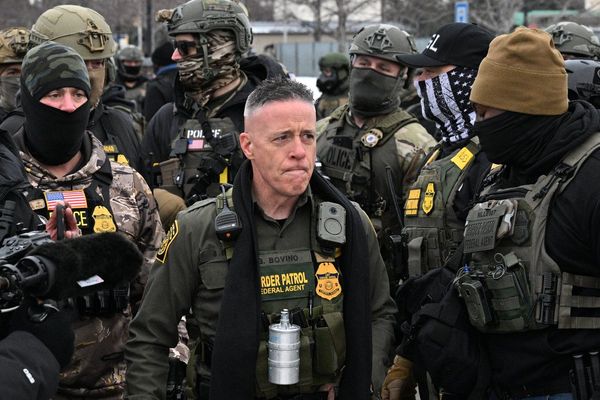
There was a seven-day delay between the New South Wales transport authority being alerted about possible asbestos contamination at a major Sydney park and testing that revealed the dangerous substance was present in recycled mulch.
Rozelle parklands has been closed for at least six weeks after a clean-up notice was issued by the state’s environmental watchdog when testing found bonded asbestos at 14 locations.
Guardian Australia can reveal the alarm was first raised with Transport for NSW on 2 January in an email from a member of the public.
“The email was sent to a general project inbox from the member of the public,” a department spokesperson said on Thursday.
“Due to the Christmas holiday period and minimal staffing during this time, the email did not reach the appropriate team until Monday 8 January, when it was immediately actioned and the member of the public was contacted directly.”
The government agency called in experts to begin investigations at the park on 9 January.
Later that day, two samples came back positive for asbestos and the park was closed to the public from 6.30am the next day. The council and public were then informed a few hours later.
At a press conference later on 10 January, the transport secretary, Josh Murray, said: “We understand that informing everyone who has access to the park is a top priority today. It’s why we went public with the concerns that we have as early as we possibly could.”
On Wednesday this week, the department said in a statement: “Transport for NSW became aware of the potential for contamination at the Rozelle parklands on Monday 8 January 2024. This followed an email inquiry from a member of the public on 2 January 2024.”
Transport brought in an occupational hygienist on 9 January to investigate – including testing and speaking with a member of the public.
“Transport began fencing off the park at first light on the morning of Wednesday 10 January and alerted the public through a media statement released just before 10am,” the spokesperson said.
It has been widely reported that a parent alerted the department to the possible contamination after their child brought home a bucket of mulch from the park.
Asked about this on the day the park was closed, John Holland executive Mark Davies said it was “very concerning that a child comes into contact with any form of asbestos whether bonded or not”.
“That was drawn to our attention yesterday, as identified by the secretary,” he said.
“We are significantly concerned ourselves with the joint venture regarding what has happened over the last 24 hours.”
Speaking at the same media conference, Murray said precautions were taken straight away.
“We had some identification by a member of the public who contacted us who had spotted some material … they asked us to look at that,” he said at the time.
“We then sent our hygienist to both meet with that member of the public and also to conduct their own tests around the park and collect some materials.”
Kobi Shetty, the Greens member for Balmain, said she was under the impression that NSW Transport became aware of the potential contamination the day before the parklands were closed.
“If they’ve waited over a week to close the parklands when they knew there was asbestos contamination on 2 January, I would be very interested to know why they thought it was OK to leave the parklands open and not inform the public,” she said on Thursday.
“The fact there’s asbestos contamination in the parklands in the first place is appalling, but if they knew and didn’t act quickly to protect the public that’s absolutely appalling.”
The Asbestos Diseases Foundation of Australia president, Barry Robson, said he was concerned.
“My concern is any of the workers that worked on building that park should register with the national asbestos exposure register,” he said. “And any concerned resident that was in the park should also register.”
He said the larger issue for the state government to consider was how asbestos-contaminated waste was managed and monitored.
Bonded asbestos is considered lower risk than friable asbestos because it is mixed with a hard material such as concrete and therefore hazardous particles are less likely to become airborne.
Greenlife Resource Recovery supplied the recycled garden mulch as part of the government’s $3.9bn Rozelle interchange project.
The source of the contamination is still being investigated by the Environmental Protection Authority. Guardian Australia is not suggesting Greenlife was responsible for it.







